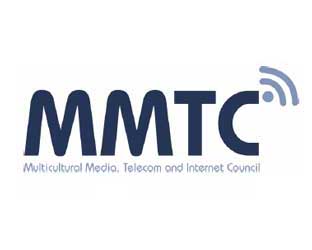The Multicultural Media, Telecom and Internet Council (MMTC) on Monday filed comments with the FCC supporting the creation of a broadcast incubator program. MMTC has been trying to persuade the FCC to create such a program since 1990, and these comments contain the history of the program, and describe how the program would work.
The comments come in response to the portion of the Dec. 1, 2016 Petition for Reconsideration of the NAB, and the portion of the Feb. 24, 2017, letter of the National Association of Black Owned Broadcasters (NABOB), which address the incubator issue.
In a nine-page letter to the FCC, the MMTC noted that the concept of a Media Incubator originated in the deliberations of Chairman Alfred Sikes’ Minority Ownership Task Force in 1990, which was co-chaired by the late Zora Brown and MMTC President Emeritus David Honig. James Winston, who represented NABOB on the Sikes Task Force, originated the concept of a Media Incubator. Since 1990, NABOB and MMTC have been the primary proponents of the concept.
The concept is that a licensee could receive a permanent waiver to exceed one of the local or national station ownership limits if the licensee makes possible the creation of an independent new voice.
“Certainly flesh needed to be placed on this basic structure, but many questions remained,” MMTC said. “What rules could be waived? What efforts would qualify? What would be the consequences if the efforts were unsuccessful?”
To secure answers to these questions, Chairman Sikes had the concept put out for comment in an NPRM, which was issued in 1992 by a unanimous vote of the commissioners.
Several supporting comments and no opposing comments were filed.
“All commissioners in office in 1992 and 1995 endorsed the incubator concept, and the Commission’s expert Diversity Committee endorsed it unanimously in 2004,” MMTC said.
In 2012, to flesh out the concept, DCS identified several activities that might qualify an incubator for a waiver, subject to ongoing review “to ensure the effectiveness of the incubating activity in increasing opportunities for SDBs, without abuses.”
These activities included the following:
- Sale or donation of a commercial radio station to a qualified entity on the condition that the recipient of a donated station certify that it will hold the station license for a period of three years following closing of the transaction effectuating the donation, subject to exceptions for economic distress or subsequent sale or donation to another qualified entry.
- Five years of an LMA (local marketing agreement) operating structure for an independent programmer on an FM HD-2 or HD-3 channel, with the independent programmer obligated to pay the licensee no more than the licensee’s actual out-of-pocket expenses associated with operation of the subchannel.
- Underwriting, including financing of one year of operations and the in-kind provisions of technical or engineering assistance or equipment that enables the re- activation and restoration to full service of a dark commercial or noncommercial station licensed to an eligible entity where the licensee or permittee certifies that it is otherwise unable to resume or commence service prior to the date on which the license or permit would be cancelled by operation of law.
- Arranging for the donation of a commercial or noncommercial station to a Historically Black College or University (HBCU), a Hispanic Serving Institution (HSI), an Asian American Serving Institution (AASI) or a Native American Serving Institution (NASI).
- Providing loans, loan guarantees, lines of credit, equity investments, or other direct financial assistance to a qualified entity to cover more than fifty percent of the purchase price of a radio station.
- Any other action that the company seeking a waiver demonstrates is likely to enhance radio station ownership opportunities for qualified entries.
In 2013, a citizen group filed an opposition to the proposal, asserting that any action that had the effect of relaxing an ownership limit, no matter whether or not it brought a new voice into a market, was contrary to the public interest. With that, the proposal was defeated by a vote of 3-2 in 2014.
But, much has changed since then. Commissioners Pai and O’Rielly dissented, and Pai is now FCC Chairman. Thus, a 2-1 vote in favor of a similarly worded proposal could result from a new look by the Commission.
The NAB hopes this will occur, just as much as the MMTC does. In comments filed in the 2014 Quadrennial Proceeding, the NAB joined with MMTC in proposing an incubator program.
“MMTC is confident that the concerns expressed by the Commission majority in the 2014 Quadrennial proceeding can be satisfied,” it argued. “Incubators should not pose great administrative difficulties – any more than MOUs and similar documents containing conditions to mergers. Such conditions are commonplace in FCC practice. They will not be large in number, and citizen groups will be watching closely.”
MMTC also believes it is possible to structure an incubator program “using LMAs in a manner that genuinely incubates minority owners.”
Finally, MMTC said, “While most of the discussion of incubators has focused on radio and on potential waivers of the local radio ownership rules, the NPRM should invite the parties to address incubation in television.”
Doing so would help give a boost to a rulemaking MMTC wants the FCC to expedite — in light of the 27-year delay on this matter, which MMTC notes is an “FCC record.”
“This relatively noncontroversial proposal has been pending in seven dockets for 27 years,” MMTC said. “It presents a genuine opportunity to increase the diversity of voices over the airwaves. Expedition is justified because ‘the arc of the moral universe is long, but it bends towards justice.’ The time to take action is now.”





